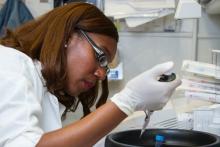The Genomics of Rare Disease hosted by the Wellcome Genome Campus will be held virtually this year on March 28-29, 2022
The meeting will explore how genomic research translates into clinical care and informs our understanding of the biology of rare disease. GREGoR Consortium PI Dr. Jennifer Posey from the Baylor College of Medicine is one of the Scientific Program Committee members for this conference and is happy to answer any questions from Consortium members.
Researchers make strides identifying genetic causes of rare neurodevelopmental disorders in the Turkish and worldwide populations
A global scientific team including researchers from Baylor College of Medicine work to find genetic answers for Turkish families.
Broad researchers join a collaborative effort to improve diagnosis of rare genetic diseases
As part of the Genomics Research to Elucidate the Genetics of Rare Disease (GREGoR) newly funded consortium, Broad researchers will work to discover new genes underlying Mendelian disorders and return diagnoses to a greater proportion of patients and their families.
New effort to discover genetic causes of single-gene disorders
The University of Washington Genetics Analysis Center (GAC), based in the School of Public Health’s Department of Biostatistics, will serve as the Data Coordination Center (DCC) for a new Mendelian Genomics Research Consortium. The consortium seeks to significantly increase the number of known single-gene disorders.
UW Medicine joins new NIH effort on rare genetic conditions
UW Medicine in Seattle will be part of a new National Institutes of Health effort to deploy innovative methods and approaches to find the genetic causes of unsolved Mendelian conditions. These conditions are suspected of being the result of changes or mutation in genes or other genomic differences – that have not yet been discovered.
The Mendelian Genomics Research Consortium will include five centers and a data coordination site
The National Institutes of Health will award nearly $80 million to support the establishment of the Mendelian Genomics Research Consortium and the development of novel methods and approaches that help researchers identify the genetic causes of single-gene diseases.







